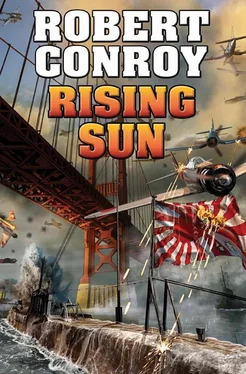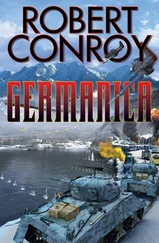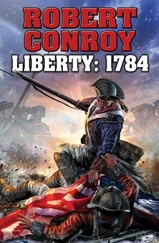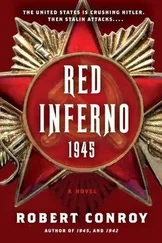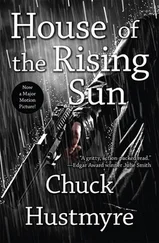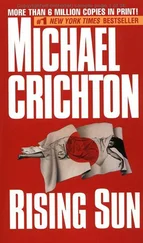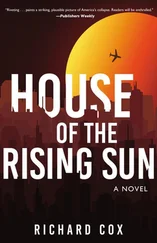Getting onto the naval base early the next morning was fairly easy. A man in uniform, even an army uniform, using a cane and with a Purple Heart and a Bronze Star on his chest, opened a lot of doors. He was just about to enter Tim’s office building when a woman’s voice hailed him.
“Lieutenant Farris, how are you?”
He turned in surprise. At first he didn’t recognize the slight young woman with the dark-rimmed glasses. Then he noticed the oriental shape of her eyes and smiled.
“Nancy Sullivan,” he said, quickly recalling the daughter of the store owner in Bridger. After Stecher had discovered Nancy and her mother at her father’s store, he had been reluctant to go the store on future occasions, which left Farris with the honors. On several occasions he’d struck up brief conversations with the slight young woman with the glasses. “I am fine, and what are you doing here?”
“Thanks to your uncle, I work here now. Apparently there cannot be enough people fluent in Japanese.”
“Speaking of my uncle, I’d like to see him.”
Her face clouded. “Ah, he’s not here. He and a number of others are, well, away.”
“I’ll bet that’s because there’s a war on, isn’t it?”
Nancy smiled. “Tell you what. Buy me a cup of coffee, and I’ll tell you what’s happened since you went to Alaska. Tim’s very proud of you, by the way.”
They had two cups each. Steve heard that Tim and Amanda were married, which delighted him, while Nancy was saddened by the death of Stecher. “There was so much hate in that man, but it seemed to be coming out.”
“Does it bother you that he died killing Japanese soldiers?”
She looked at him quizzically. “No more than it bothers me that you killed some of the enemy. You keep misunderstanding me and, for that matter, many American people of Japanese descent. I am an American, not Japanese. Japan is a strange and predatory land across a very large ocean, and, like all Americans, I cannot understand this perverse code of behavior called bushido. It is insane. Maybe someday I’ll go visit and look up my ancestors, just like my father would like to see his ancestors in Ireland, but not until my country, the United States, has defeated Japan.”
“Sorry,” he said sheepishly.
“Don’t worry.” She smiled widely, then reached across and patted his arm. He noticed that she had a number of light freckles across her cheeks. Not too many Japanese had freckles, he thought. It made her look very attractive.
Nancy stood. “Even though almost everybody’s gone from the office, I really should get to work.”
“Would you like to go to lunch with me?”
“I’d like that a lot,” she said, and Steve began to think that the day might not be a total loss after all.
At that moment, the sirens began to howl.
* * *
Harris yawned. Sitting in a car and looking at an apartment building in Mexico City was worse than dull. He had enough seniority to dump these jobs on more junior FBI agents, but no, his informant in the Mexican Army had been specific. He and he alone should be at the expensive-looking apartment building at eight o’clock in the morning on this date. He was told he might appreciate Mexican justice being served, and the thought indeed intrigued him.
A few minutes after eight, Juan Escobar, colonel in the Mexican Army and informant for the Nazis and Japanese, stepped through the door. He was in casual civilian clothes and seemed well satisfied with himself. Harris recalled that Escobar had a mistress, and it seemed logical that he’d spent the night with her. He clearly looked smug after getting laid and Harris envied him.
So what did that have to do with him and the FBI? Maybe he was going to watch Mexican police arrest Escobar for providing aid to the Germans and the Japanese? That was a pleasant enough thought, but why did they think it was necessary for him to be there to watch?
Escobar stood near the curb and looked around as if he didn’t have a care in the world. He was obviously waiting to be picked up by some junior officer. Harris stiffened as the colonel was approached by two men in equally casual clothing. His mind registered the sight of the pistols being drawn. They were jammed into Escobar’s gut while he began to protest, a look of terror on his face. The men fired rapidly and Escobar’s eyes widened and then glazed over.
As Escobar toppled to the ground, blood pouring from his chest, the men took his wallet and watch. One more shot to the chest to make certain he was dead, and the men ran down the street and around the corner. A few stunned people came out and slowly began to approach Escobar’s body. Harris quickly shook off the shock of the murder. He had been told that justice would be served and he couldn’t argue with the brutal fact. Also, he had to admit that faking the robbery might actually mask the fact that it had been an assassination by other members of the Mexican military.
He waited only a few seconds to gather his nerves and drove back to his office in the American Embassy. He didn’t want the Mexico City police wondering what an American FBI agent was doing so close to the killing of a respected Mexican Army colonel.
The somewhat grumpy woman assigned as his secretary had taken a message from someone who refused to give a name, only saying that Mexicans don’t like traitors either. Harris crumpled the paper and threw it in the wastebasket.
He thought he should talk to the ambassador before leaving to go back to the U.S., but just then someone loudly announced that the Japs were attacking California. The hell with the ambassador, Harris thought as he ran out of the embassy, he had to get a flight back to California as soon as possible.
* * *
Amanda had just arrived for her shift at the hospital when the sirens began to scream. Oh God, she thought. What should she do now? Patients were staring at her as if she knew what to do. Some could be moved, but many could not. But where to go? Was anyplace safe? Worse, there was an appalling lack of shelters.
The supervising nurse solved at least part of her problem. “Get as many as you can down to the basement and stay with them. I’ll take care of the ones who can’t move.”
Amanda and another nurse managed to get a good twenty men down from the second floor and to a room in the damp and claustrophobic basement. Another dozen wounded made it themselves, some even joking how Japanese bombs and shells motivated them to get their butts out of bed and made them forget their little aches and pains.
When everyone was pretty well settled on the floor of the basement, Amanda went back upstairs. The sirens were still wailing, but did that mean enemy shells or bombs? Or maybe—please—maybe it was a false alarm. She’d endured bombs, shells, and false alarms in Honolulu, what seemed an eternity ago. Just a couple of days earlier, she’d relished discovering so much about herself and Tim, and how much they enjoyed making love and thinking about the future. What the hell was happening to her little world? Tim was off to somewhere dangerous and she was under enemy fire in San Diego. Where was God in all this mess?
“Our ships are leaving,” someone yelled. She dashed to a window. Sure enough, the handful of American warships that had remained in San Diego Bay were steaming as rapidly as they could toward the open sea.
She asked a navy captain whether or not the departing ships were going to take on the Japanese, and got an answer that surprised her.
“Sure hope not. Two cruisers and half a dozen destroyers aren’t going to stop the Jap navy,” he said. “They’d get killed. The navy’s just trying to get those little ships out to safety. That is, if there is any place safe.”
Читать дальше
